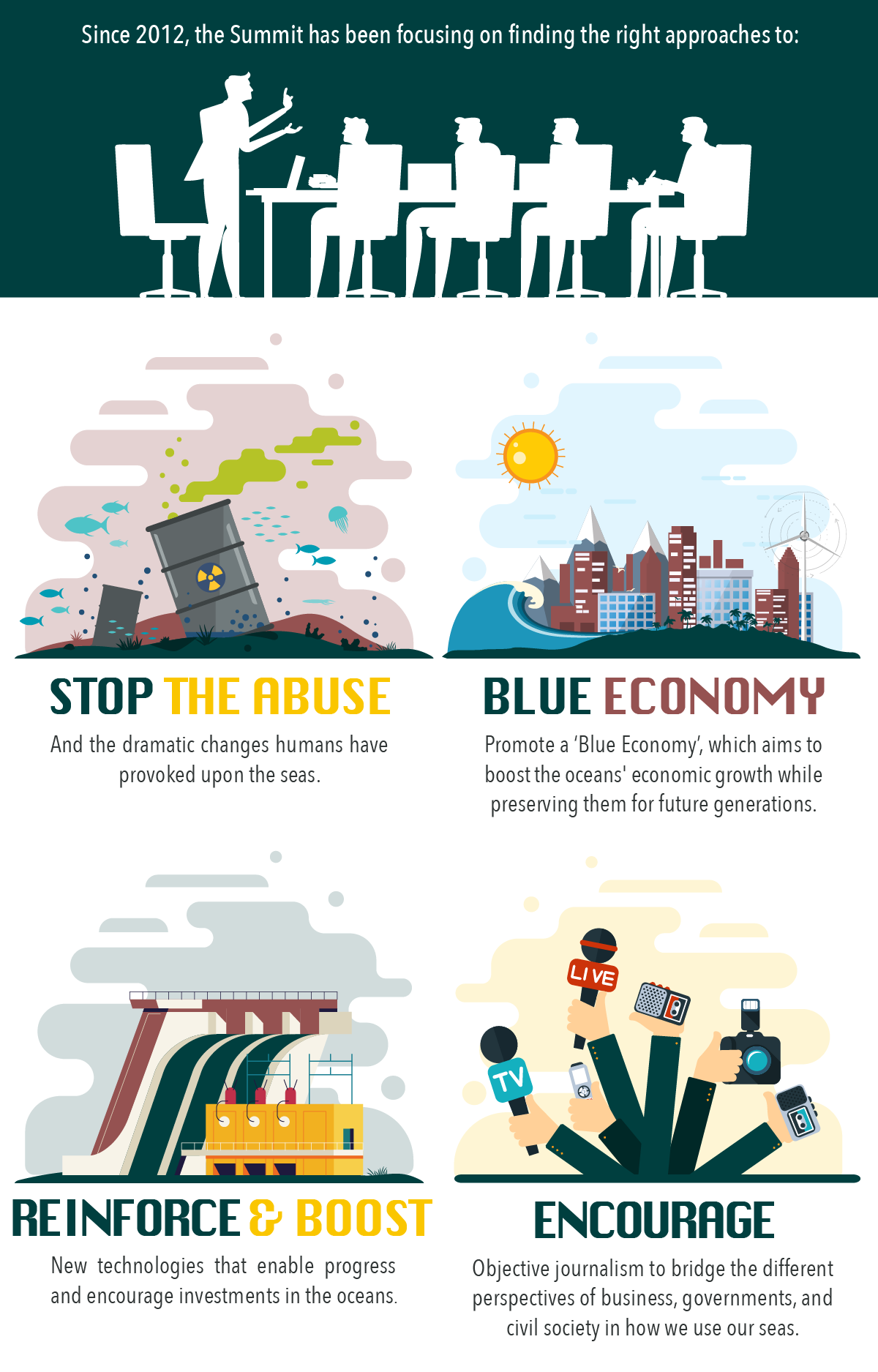‘The world’s oceans – their temperature, chemistry, currents, and life – drive global systems that make the Earth habitable for humankind. Careful management of this essential global resource is a key feature of a sustainable future.” – United Nations
The world’s oceans are in trouble and one thing is certain: our current course is unsustainable. If we continue to harm the oceans, glaciers and ice sheets are at the risk of melting and sea levels could rise by as much as 80 meters. This is about the height of a 26-story building, making the vast swathes of the world’s coastline and neighboring cities inhabitable.
By damaging the oceans and eliminating the benefits they provide, we are putting the continuity of life as we know it at risk. The world’s population is highly dependant on the oceans: they are responsible for producing over half of the world’s oxygen, storing 50 times more carbon dioxide than our atmosphere and transporting heat from the equator to the poles, thereby regulating our climate and weather patterns.
Across the world, humans have effected dramatic change upon the seas and now, as we are transitioning to a more sustainable world with the guidance of the UN Sustainable Goals, we need to increase the protection of this invaluable resource that allows human life.
To achieve this goal, the fifth World Ocean Summit (WOS) was held in Mexico with the aim to gather political leaders, policymakers, heads of global businesses, scientists, NGOs and multilateral organizations to create an action and delivery plan to tackle the biggest problems the oceans are currently facing.

The meeting was an opportunity to engage the private sector and ensure capital to conserve this vital resource through sustainable practices that have the potential to generate enormous economic growth. This year, the Summit worked based on an improved version of the World Ocean Initiative, which focuses on five pillars:
- Sustainable fisheries: In order to sustainably manage fisheries and restore our oceans to abundance, the projects and companies performing wild-caught fisheries must comply with the Principles for Investment in Sustainable Fisheries in an eco-friendly and socially responsible manner.
- Pollution: The majority of pollutants that enter the ocean come from human activities on land. Currently, plastic pollution is one of the major threats, with around 1.4 billion pounds of trash entering the oceans per year. In order to face this enormous threat, policymakers have agreed to work on a framework that promotes the reduction of single-use plastics, recycling, cleaning of beaches and rivers, the support of bans and the avoidance of microbeads.
- Climate Change: The average global sea surface temperature has increased about 1.5°F since 1901, an average rate of 0.13°F per decade. The world needs to avoid further increasing the temperature of the oceans, as this leads to melting poles, rising sea levels, severe changes to the ocean’s major current systems and acidification.
- Finance: The financial and organizational support for research, conservation, and development in the ocean sector is now a great investment opportunity as the international community has realized the benefits of protecting and taking advantage of the sea’s resources.
- Technology: Increasing the use of technologies to improve the protection and conservation of the oceans is now vital to be able to digitally control the ocean. Recent developments in global satellite ocean monitoring, underwater robotics, and GPS-enabled vessel monitoring should be boosted through worldwide policies.
Source: The Economist
The world has been working to achieve UN Sustainable Goal number 14 (“Conserve and sustainably use the oceans, seas and marine resources.”) by promoting the cooperation between companies, governments, and individuals. To support these efforts, the WOS has served as a forum to make and achieve these commitments to the seas and go beyond big promises, to delivery and accountability. Primal Group is committed to the UN agenda and especially Goal 14 due to the proximity of our plantations to the Atlantic Ocean, which is located just a mile away. To fulfill our role as a green and sustainable company, we have created our own policies to avoid ocean plastic pollution and guarantee that our waste does not become pollution that ends up in the ocean. Additionally, our new consumer brand ViTA is the world’s first company to use bottles made from 100% OceanBound recycled plastics. By utilizing the most sustainable packaging option available, we are offering a solution to the growing plastic problem and are actively involved in the removal of plastics from the seas.
The World Ocean Summit, the most diverse and important global gathering on ocean protection, was held to turn former pledges into reality and guarantee change over the next few decisive years – because if anything is too big to fail, it is the ocean.